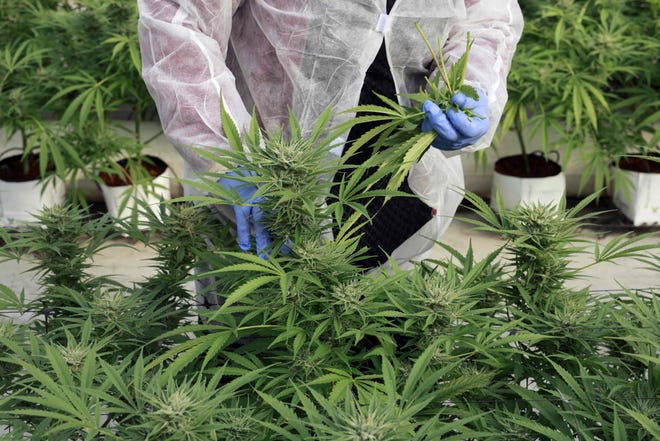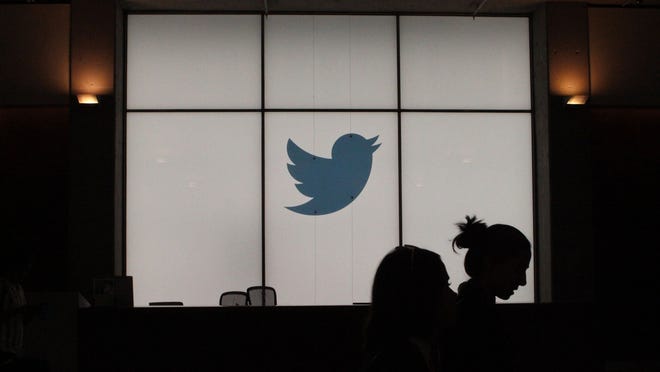The declare: Hashish kills most cancers cells
Most cancers accounted for about 10 million deaths worldwide in 2020, according to the World Health Organization. One widespread social media submit suggests a few of these deaths might have been averted if most cancers sufferers used hashish.
A two-minute Fb video shared Jan. 31 reveals varied photographs of the hashish sativa plant. A voiceover describes the advantages of the plant, together with its capacity to deal with most cancers.
“Hashish Kills Most cancers Cells With out Damaging Wholesome Ones!” reads the caption of the video.
Observe us on Fb! Like our page to get updates throughout the day on our latest debunks
The submit generated near 1,400 interactions and 92,000 views in lower than every week. Variations of this declare have amassed hundreds of likes on Fb.
However the declare does not inform the entire story.
Consultants instructed USA TODAY that, whereas some research have proven chemical compounds in hashish can kill most cancers cells, these findings haven’t been replicated in scientific trials involving people. And whereas the Meals and Drug Administration has accredited cannabis-based merchandise for the therapy of cancer-related unwanted side effects, they aren’t confirmed to treatment most cancers.
USA TODAY reached out to the social media customers who shared the declare for remark.

Results solely proven in preclinical trials
Cannabinoids, chemical compounds within the hashish plant, have lengthy been demonstrated to kill most cancers cells in check tube experiments, based on Dr. Donald Abrams, an integrative oncologist on the College of California-San Francisco.
Nonetheless, these findings haven’t been replicated in scientific research involving people – the gold commonplace of medical analysis.
Dr. Christopher Holstege, chief of the division of toxicology on the College of Virginia, instructed USA TODAY he might discover no ongoing scientific trials of hashish as a therapy for most cancers in people. Research additionally do not sometimes use hashish in its uncooked kind, he stated.
“Researchers have a tendency to make use of extra purified merchandise versus uncooked plant materials partly as a result of they wish to know precisely what’s getting used within the research,” Holstege stated.
Truth test: No evidence COVID-19 vaccines cause neurodegenerative diseases in young people
There are about 80 to 100 cannabinoids within the hashish plant, with tetrahydrocannabinol (THC) and cannabidiol (CBD) being the primary two, based on the Alcohol and Drug Foundation. Cannabinoids can work together with receptors within the nervous system and regulate cell exercise.
The earliest revealed analysis on the anticarcinogenic results of cannabinoids is a 1975 study that discovered the compounds inhibited lung adenocarcinoma most cancers cell development in vitro and in mice, based on a 2016 literature review. Preclinical research revealed in later years additionally discovered cannabinoids inhibited most cancers cell development for situations like breast cancer, melanoma skin cancer and thyroid cancer.
Some research have proven cannabinoids eradicate most cancers cells with out damaging wholesome ones, based on the National Cancer Institute. A 2021 study additionally discovered that extracts from the hashish plant defend regular colon cells whereas lowering the viability of cancerous cells.
These research are promising. However there may be nonetheless no “stable foundation for ongoing claims by proponents of extremely concentrated hashish extracts or oils that these preparations can ‘treatment most cancers,'” based on a 2015 literature review revealed within the journal Medical Pharmacology & Therapeutics. That is nonetheless true at the moment, Holstege stated.
Hashish is not a confirmed most cancers treatment
Whereas analysis has indicated some compounds in hashish can inhibit the expansion of cancerous cells, that does not imply it is a treatment. Most cancers sufferers who depend on hashish to deal with their situation can face potential well being dangers, based on Holstege.
“You wish to do the confirmed therapies, not unproven therapies, or you would possibly die out of your most cancers,” Holstege stated. “If you are doing hashish merchandise, you actually need to do not forget that there may be drug interactions that happen with different drugs that you are taking.”
Adversarial unwanted side effects from taking hashish merchandise embrace drowsiness, sleepiness, blood strain change, elevated coronary heart price and nausea, based on the Memorial Sloan Kettering Cancer Clinic.
Extra:Can Biden’s ‘Cancer Moonshot’ succeed? It’s possible, experts say, but it will take more than words
“One downside with the general public taking U.S. hashish merchandise is that there’s little high quality management and also you have no idea what you’re getting within the merchandise bought,” Holstege stated.
Two commercially out there cannabis-based medication, dronabinol and nabilone, are FDA-approved “for the therapy of cancer-related unwanted side effects,” based on the National Cancer Institute. Nonetheless, the FDA has not accredited any hashish merchandise for the therapy of most cancers itself.
Our score: Lacking context
Based mostly on our analysis, we price MISSING CONTEXT the declare that hashish kills most cancers cells. Preclinical research have proven that hashish compounds can kill most cancers cells, however no scientific trials in people have replicated these outcomes. Whereas some cannabis-based medication are accredited by the FDA to deal with cancer-related unwanted side effects, consultants warning that they aren’t an alternative choice to most cancers therapy. They may even have some opposed unwanted side effects.
Our fact-check sources:
- Dr. Donald Abrams, Feb. 2, Electronic mail alternate with USA TODAY
- Dr. Adam Friedman, Feb. 2, Telephone interview with USA TODAY
- Dr. Christopher Holstege, Feb. 5, Telephone interview with USA TODAY
- Nationwide Most cancers Institute, accessed Feb. 7, Cannabis and Cannabinoids (PDQ®)–Health Professional Version
- Medical Pharmacology & Therapeutics , June 2015, Cannabis in cancer care
- Jama Community, June 23-30, 2015, Cannabinoids for Medical Use
- American Most cancers Society, Aug. 4, 2020, Marijuana and Cancer
- Alcohol and Drug Basis, Nov. 10, 2021, What is cannabis?
- Most cancers Letters, Nov. 28, 2011, The antimitogenic effect of the cannabinoid receptor agonist WIN55212-2 on human melanoma cells is mediated by the membrane lipid raft
- Life Sciences, Oct. 1, 2015, Differential role of cannabinoids in the pathogenesis of skin cancer
- Present Oncology, March 2016, Anticancer mechanisms of cannabinoids
- Nationwide Heart for Complementary and Integrative Well being, November 2019, Cannabis (Marijuana) and Cannabinoids: What You Need To Know
- Nationwide Library of Drugs, March 2019, Learn About Clinical Studies
- Most cancers Drugs, March 2018, The current state and future perspectives of cannabinoids in cancer biology
- Nationwide Institutes of Well being, Jan. 19, 2019, False News of a Cannabis Cancer Cure
- Most cancers Analysis, July 1, 2006, Cannabinoids induce apoptosis of pancreatic tumor cells via endoplasmic reticulum stress-related genes
- World Well being Group, Feb. 3, Cancer
- Oncogene, Aug. 28, 2008, JunD is involved in the antiproliferative effect of Delta9-tetrahydrocannabinol on human breast cancer cells
- The FASEB Journal, September 2003, Inhibitory effects of cannabinoid CB1 receptor stimulation on tumor growth and metastatic spreading: actions on signals involved in angiogenesis and metastasis
- Crops, March 17, 2021, Different Cannabis sativa Extraction Methods Result in Different Biological Activities against a Colon Cancer Cell Line and Healthy Colon Cells
- Memorial Sloan Kettering Most cancers Heart, June 29, 2021, Cannabis
- Journal of the Nationwide Most cancers Institute, September 1975, Antineoplastic activity of cannabinoids
Thanks for supporting our journalism. You possibly can subscribe to our print edition, ad-free app or electronic newspaper replica here.
Our fact-check work is supported partly by a grant from Fb.
















